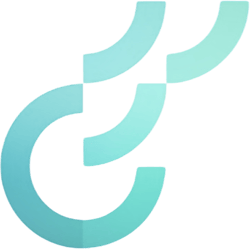How to Measure and Improve Content Performance Using the Right Tools
In 2026, businesses that succeed in digital marketing aren’t just producing more content.
They’re getting more value out of the content they already have.
Yet many organisations still struggle to measure whether their content is actually doing its job.
Without the right tools and a clear measurement model, content teams operate in the dark. Decisions get made on instinct. Old content is delivered untouched. Performance issues surface late, if at all. The result is familiar: wasted effort, underwhelming engagement, and content that never quite earns its keep.
This is where optimisation matters.
By treating content as something to continuously measure, test, and improve, rather than something you publish and move on from, teams can focus effort where it makes a measurable difference.
Optimizely’s content performance tools support this approach by helping teams track, experiment, and optimise content in real time - so every asset has a clear purpose and a visible outcome.
In this guide, we’ll look at how to measure content performance properly, where most teams go wrong, and how the right tools help turn insight into action.
Why Measuring Content Performance is Essential
Modern content strategies are iterative by necessity. Measurement is how you decide what to fix, what to double down on, and what to stop doing.
Done well, content performance measurement helps teams:
- Understand which content actually contributes to engagement and conversion
- Spot underperforming assets early, before they drain time and budget
- Improve relevance by responding to real user behaviour, not assumptions
- Strengthen SEO, user experience, and lead generation through evidence-led change
The problem: many organisations collect data but don’t use it to drive decisions. Content underperforms, buried in dashboards no one acts on.
The fix: a structured, optimisation-led approach to content measurement, supported by tools like Optimizely CMP and real-time analytics that surface what matters and prompt action.
Key Content Performance Metrics to Track
Effective measurement focuses on a small number of metrics that map directly to business outcomes, not vanity numbers.
1. Engagement Metrics (User Interaction & Interest)
- Time on page: Indicates whether users are actually consuming the content
- Bounce rate: Highlights pages that fail to meet expectations
- Scroll depth: Shows how much of the content is being read
- Comments and social shares: Signals relevance and resonance
How the right tools help: real-time engagement data makes it easier to identify where users disengage and test improvements quickly, rather than guessing after the fact.
2. Conversion Metrics (Business Impact)
- Click-through rate (CTR): Measures the effectiveness of CTAs and internal linking
- Lead generation: Tracks which content supports form fills and subscriptions
- Ecommerce actions: Assesses how content contributes to revenue-related behaviour
How the right tools help: experimentation and A/B testing highlight which changes improve conversion paths, without relying on opinion-led decisions.
3. SEO & Discoverability Metrics (Visibility & Traffic Growth)
- Organic traffic: Indicates how well content attracts search-driven users
- Keyword rankings: Shows whether content is competitive in search
- Backlinks and authority signals: Reflect credibility and relevance
- SERP click distribution: Reveals how titles, metadata, and structure perform
How the right tools help: automated SEO insights make it easier to prioritise fixes that improve visibility, rather than endlessly tweaking content that already performs.
4. Personalisation with Optimizely’s Personalisation Engine
-
Adjusts content based on behaviour and intent
-
Improves relevance without creating content sprawl.
-
Uses behavioural insight, including zone bases heatmap analysis from integrated tools such as Contentsquare, to understand how users actually interact with content.
-
Measures whether personalisation actually improves outcomes.
Practical takeaway: personalisation should earn its place through measurable lift, not novelty.
How to Improve Content Performance with the Right Tools
Optimisation requires tooling that supports action. Here’s how Optimizely’s platform enables a practical optimisation workflow:
1. Content Insights with Optimizely CMP
- Centralises performance data across channels
- Highlights content that is over- or under-performing
- Surfaces patterns in topic demand and engagement
Practical takeaway: focus new content investment on themes that already demonstrate measurable return.
2. A/B Testing and Experimentation with Optimizely Web Experimentation
- Test content structure, messaging, and CTAs
- Measure impact in real time
- Refine experiences for different audience segments
Practical takeaway: small, continuous experiments outperform infrequent, high-effort redesigns.
3. SEO and Metadata Optimisation with Optimizely DXP
- Automates metadata management
- Flags SEO issues early
- Connects search performance directly to content decisions
Practical takeaway: optimisation is ongoing. Content that ranked last year won’t stay competitive without attention.
4. Personalisation with Optimizely’s Personalisation Engine
- Adjusts content based on behaviour and intent
- Improves relevance without creating content sprawl
- Measures whether personalisation actually improves outcomes
Practical takeaway: personalisation should earn its place through measurable lift, not novelty.
5. Performance Measurement with Optimizely Analytics
-
Provides a unified view of content, experimentation, and experience data
-
Connects user behaviour to business outcomes
-
Enables faster, evidence-based optimisation decisions
Practical takeaway: analytics only matter when they shorten the distance between insight and action.
Best Practices for Measuring & Improving Content Performance
- Set clear goals upfront
Define what success looks like before publishing, and tie it to a business outcome. - Review performance continuously
Use live data to spot issues early and prioritise fixes. - Optimise before creating more
Improving existing content is often faster and cheaper than producing net-new assets. - Automate insight, not thinking
Let tools handle reporting so teams can focus on decisions and action.
The Future of Content Performance Measurement
Content optimisation is moving from retrospective analysis to continuous, automated improvement.
-
Real-time analytics will replace manual reporting cycles
- Predictive insights will help teams act earlier, not react later
-
Conversational and voice analytics will expand how content performance is understood
Optimizely is already investing heavily in this direction, enabling teams to move faster while staying grounded in evidence.
To succeed in 2026, content marketing needs to be measurable, pragmatic, and relentlessly focused on improvement.
The teams that win will be the ones who optimise.
If your organisation struggles to understand which content is working, which isn’t, and what to do next, you may have an optimisation gap.
A practical next step
We’ve packaged what we see repeatedly across enterprise content and experience teams into a Content and Experience Clarity playbook. It’s practical, grounded, and designed to help you:
- See where your content and experience are underperforming
- Prioritise what to fix first (and what to stop doing)
- Apply optimisation thinking without adding complexity or headcount
It’s packed with guidance you can use straight away, whether you’re trying to get more value from existing content or bring some discipline back to experience decisions.
If you want clearer signals, fewer assumptions, and content that earns its place, this is a good place to start.

Put Optimizely to work for your business


